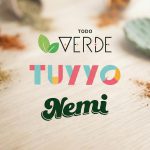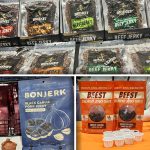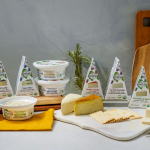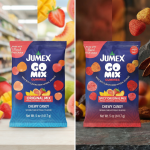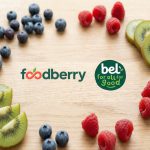Beekman Boys See Success With Storytelling

The story of how Josh Kilmer-Purcell and Dr. Brent Ridge came to become a gourmet food producer duo is something out of a specialty food fairy tale. Their journey began just under 10 years when they purchased a farm and small herd of goats in upstate New York. But with savvy marketing skills, Kilmer-Purcell, a former advertising executive turned author, and Ridge, former VP of healthy living for Martha Stewart Omnimedia, sprouted from their humble beginnings to see consistent growth across their Beekman 1802 line.
The line itself has seen growth for six years consecutively, and the company projects it will double sales in the three to come. Beekman’s 600 products– 150 of which are food or beverages– are sold in hundreds of independent specialty retailers, as well as national chains including Henri Bendel, Anthropologie and Williams-Sonoma. And Ridge and Kilmer-Purcell’s foodie empire doesn’t stop with the Beekman brand. It now includes a T.V. show on the Cooking Channel, cookbooks and a “mercantile” near their home. In 2012, the pair competed in — and won– CBS’ hit show, The Amazing Race.
Despite the company’s growth and TV fame, Kilmer-Purcell and Ridge said they want to maintain their small business feel, keeping a close relationship with their consumers. Although maintaining a consistent brand voice can be difficult the two believe this outreach has been key to the company’s success.
“Everything is so fragmented. Whether you’re talking about media, retail, unless you have a huge budget to get your product out there or have a huge customer acquisition budget, people just aren’t going to find you,” Ridge told NOSH at the 2017 Summer Fancy Food Show. “We don’t have that budget obviously… so we aggregate eyeballs from a bunch of different places. So for us, because we have products in so many categories, we’re in so many different retailers, we’re on T.V., we have magazines, we’re just aggregating eyeballs from all these different streams.”
In 2014, the “boys,” as they’re known, launched a pasta sauce in Target made from “Mortgage Lifter” heirloom tomatoes. The retailer then ordered 48 more products under the Beekman 1802 Farm Pantry banner to be sold in over 1,500 Target locations. Twenty-five percent of the profits from the line went toward the Beekman 1802 Mortgage Lifter Project to aid innovative small American Farms.
The pair no longer works with Target, but will launch in larger natural chains in this fall. Despite their own successes, Kilmer-Purcell added he knows working with larger retailers isn’t the right move for every company.
“[Smaller producers] should think of [working with large retailers] as another channel, not the end game,” he said. “A lot of small artisanal producers are chasing a big retailer and once they land that big retailer, they stop their own e-commerce, they stop the farmers markets they went to, they’ll stop the mom and pops… But the challenges that big box retailers are having means they aren’t the end solution anymore. You need to keep parallel channels going at all times.”
Part of the issue with larger retailers, Kilmer-Purcell noted, can be the difficulty in telling a brand’s story. With gourmet and specialty products, many with higher price tags, consumers want to know why they should pay more. Unfortunately, he said, sometimes larger retailers don’t have the bandwidth to explain that value proposition and “create the culture of desire.” Instead, many cut prices.
For their own line of products, Kilmer-Purcell and Ridge work with artisans and farmers around the country. Unlike some other brands, the Beekman Boys encourage producers to tell consumers they are working with the pair. The pair has found that while some producers want to craft their own products and get them on shelves, others want to focus on the making of the products themselves. That’s where a relationship with the Beekman Boys comes in.
“What we found is that small farms and small artisan producers are making amazing products across the country, but if their passion is growing and making and cooking, it doesn’t always translate to marketing and selling and growing the business,” Kilmer-Purcell said. “They can use the cash flow we’re offering them to grow their own brand at the same time. It shouldn’t be mutually exclusive.”

